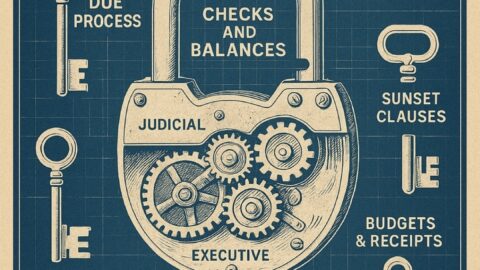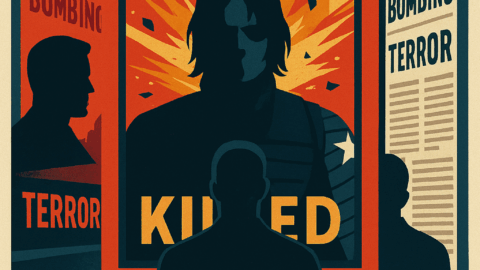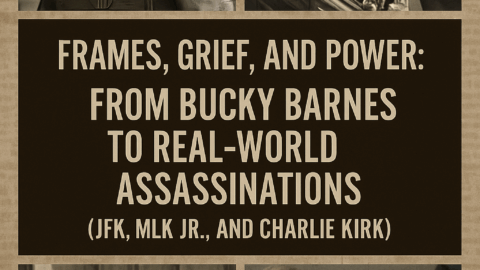“Life is like arriving late for a movie, having to figure out what was going on without bothering everybody with a lot of questions, and then being unexpectedly called away before you find out how it ends” — Joseph Campbell
Joseph Campbell’s analogy compares life to arriving late to a movie, suggesting that we are thrust into a complex narrative already in progress, forced to piece together its meaning and direction without full context. This mirrors the human experience of being born into a world with a rich history, ongoing dynamics, and an uncertain future. Understanding this analogy offers profound insights into how we can navigate life and uncover the threads of the past that shape our present and future.
Interpreting Campbell’s Analogy
Arriving Late:
- We enter a world with preexisting systems—cultural, social, political, and environmental—that we didn’t design but are immediately influenced by.
- Like a movie, the world has “acts” or stages of history, and we must catch up to understand what has already transpired.
Figuring It Out:
- Much of our understanding comes from observation, questioning, and study.
- Life demands that we gather context—learning from books, mentors, experiences, and history—to make sense of our place in the narrative.
Leaving Early:
- Our lives are finite, and we won’t see the resolution of many larger stories, such as the long-term impact of societal changes, scientific discoveries, or even personal legacies.
- This calls for humility and the recognition that our role is part of a much larger, ongoing story.
How to Understand the Past and Its Effects on the Present and Future
To bridge the gaps in knowledge and find meaning, we must actively seek to understand the past. This pursuit impacts both individual growth and the collective progress of mankind.
Study History
- Learn From Historical Patterns:
History offers lessons on human behavior, societal evolution, and the consequences of actions.- Example: The rise and fall of empires teach us about governance, corruption, and resilience.
- Understand Cultural Heritage:
Learning about one’s own culture and others fosters empathy, understanding, and global awareness.
Explore Personal Origins
- Family and Community History:
- Understanding where you come from—your ancestry, traditions, and familial values—provides clarity about your identity.
- It also reveals patterns that may influence your behaviors, decisions, and beliefs.
- Self-Reflection:
Regular introspection helps you understand how past experiences shape your perceptions and reactions in the present.
Engage With Philosophy and Religion
- Big Questions:
Philosophy and religion explore timeless questions about existence, purpose, and morality.- Example: Joseph Campbell’s own work, such as The Hero with a Thousand Faces, emphasizes the recurring patterns in myth and religion that offer guidance for human life.
- Spiritual Traditions:
Many spiritual paths emphasize understanding the eternal and transcendent, connecting the past, present, and future through divine purpose.
Seek Wisdom Through Science and Education
- Scientific Inquiry:
Understanding how natural and social sciences have evolved reveals the trajectory of human progress and challenges.- Example: Advances in technology show how curiosity about the past leads to innovation.
- Interdisciplinary Learning:
Combining insights from multiple fields—history, psychology, anthropology, etc.—creates a holistic view of human existence.
Observe Current Events
- Understanding the present requires analyzing the ongoing “movie” of societal trends, technological advancements, and political developments.
- Staying informed and critically thinking about current events helps contextualize your role and actions in shaping the future.
How It Affects Mankind’s Future
The past is a foundation, the present is a reaction, and the future is a creation. Understanding this chain helps individuals and societies make informed choices.
Legacy of Knowledge
- Every individual contributes to the collective human story by preserving and passing on knowledge.
- Education, storytelling, and mentorship ensure that future generations can build on past progress rather than repeat mistakes.
Ethical Responsibility
- By learning from past failures—wars, injustices, environmental degradation—we can adopt more ethical behaviors.
- The future depends on collective efforts to correct past harms and create sustainable systems.
Personal and Collective Purpose
- Recognizing oneself as part of a larger story fosters purpose and resilience.
- Working toward meaningful goals aligns personal fulfillment with societal advancement.
Conclusion
Joseph Campbell’s metaphor underscores the importance of curiosity, humility, and active engagement in understanding the “movie” of life. While we may never fully grasp the entirety of the past or see the conclusion of humanity’s story, we can uncover truths by studying history, embracing education, and living purposefully. By doing so, we not only enrich our own lives but contribute to the unfolding narrative of mankind.







